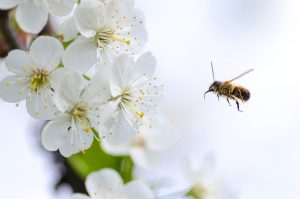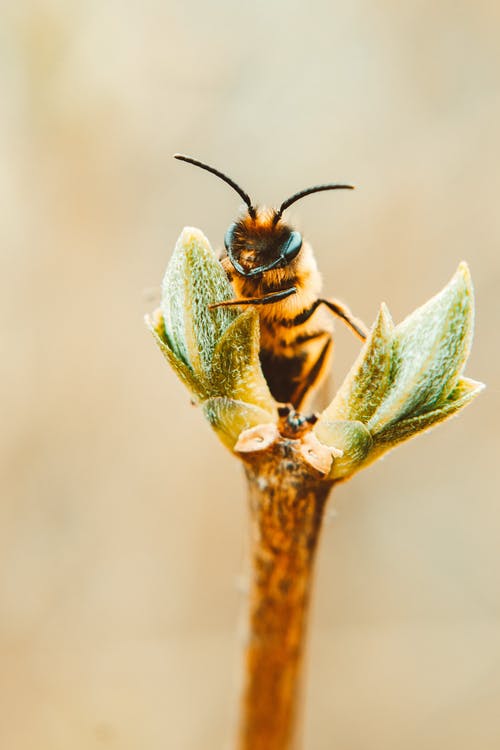Scientists contend dogs can be trained to ‘sniff out’ COVID-19. Now, so can bees.
A research team in the Netherlands has trained more than 150 bees to detect coronavirus infections. Bees have a heightened sense of smell, which the team used to its advantage. Honeybees use this to detect nectar in plants, and scientists have previously referred to this when diagnosing diseases.
Scientists in the bio-veterinary research laboratory at Wageningen University gave the bees sugar water as a reward after showing them samples infected with COVID-19. No sugar water would be offered if shown a sample without the virus. These were collected from healthy as well as infected minks.
The research team wrote, “By repeating this action several times, the bees associated the sugar reward with the scent as the stimulus. With this repeated conditioning, soon enough bees started extending their tongues out for the scent alone, with no reward offered as a follow-up.”

Wim van der Pol, a professor at Wageningen University and lead author explained, “Our first goal was to demonstrate that we could train bees to do this, and that’s where we succeeded. And now we are calculating, and we are continuing the work to see how sensitive the method is.
As far as the methodology used to detect coronavirus infections, van der Pol said, “We present coronavirus positive and coronavirus negative samples. After presenting a positive sample, we always present sugar water afterwards. Having got used to the system, the bees were able to spontaneously extend their tongues to receive a reward when presented with an infected sample. We collect normal honeybees from a beekeeper, and we put the bees in harnesses.”
The team concluded, “The extending of the bees’ straw-like tongues to drink is confirmation of a positive coronavirus test result.” The response from the bees is instantaneous whereas getting traditional test results back takes much longer. Using bees is also inexpensive, which is particularly valuable, scientists said, in areas with an insufficient number of available tests.
“Not all laboratories have that, especially in smaller income countries,” van der Poel said, adding, “Bees are everywhere, and the apparatus is not very complicated.”
Dirk de Graaf, a professor who studies bees, insects, and animal immunology at Ghent University in Belgium, said he did not “see the technique replacing more conventional forms of COVID-19 testing in the near future.” He added, “It is a good idea, but I would prefer to carry out tests using the classic diagnostic tools rather than using honeybees for this. I am a huge bee lover, but I would use the bees for other purposes than detecting COVID-19. The technique of ‘insect sniffing’ was effectively tested by the U.S. Dept. of Defense to detect explosives and toxins in the 1990s. Too little is known about the Wageningen testing to determine its true effectiveness.”
The bee study comes amid others utilizing dogs to ‘sniff’ out the virus. Researchers from the University of Pennsylvania’s School of Veterinary Medicine found last month that mass COVID-19 screening could be accomplished using the dogs’ keen sense of smell.
Sources:
Scientists train bees to identify coronavirus infection
Bees Can Be Trained to Detect COVID-19
Training bees to smell the coronavirus
The dogtor is in: Study finds dogs can sniff out COVID-19 with 96% accuracy


Join the conversation!